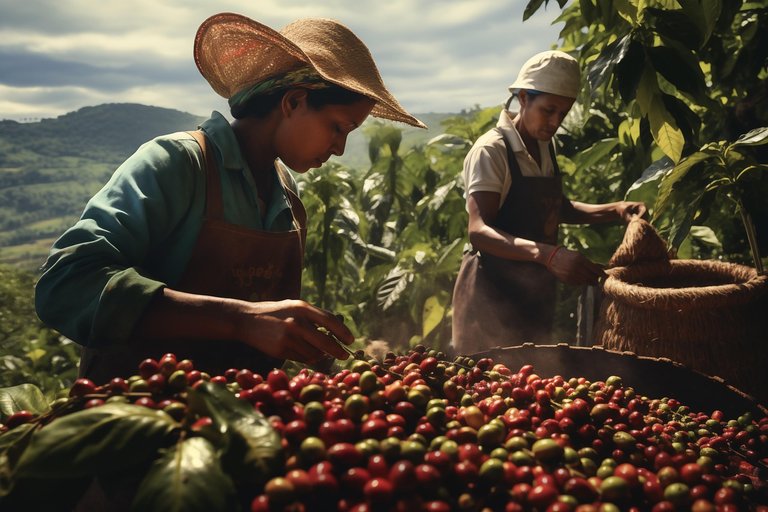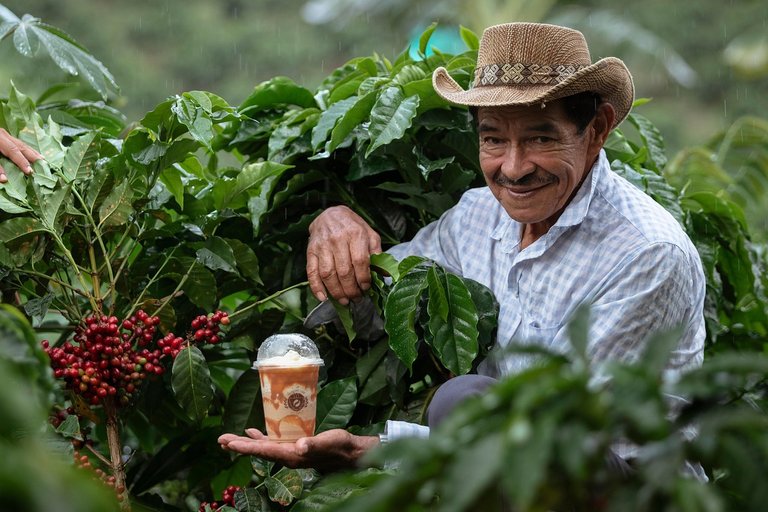Getting to Know the Ongkosen & Mango Lo Systems in the Traditional Gayo Farmer Tribe |
Both in matters of food crisis and food security, Gayo female farmers have solidarity. This solidarity even occurs in daily activities, not just emerging when there is a problem that befalls some or all of them. This is described by Khalisuddin et al (2012):
“Women in Gayo land have a tradition that unconsciously strengthens kinship ties. Usually Gayo women collect in groups.
If a coffee farmer's garden is bearing a lot of fruit, the owner of the garden, especially women, invites neighboring mothers to work in their garden.
There are two work systems that apply in the Gayo coffee farming community, namely the Ongkosen and Mango Lo systems”.
Ongkosen is a system that provides wages to other farmers who “help” collect the harvest. The amount of wages is also quite varied. This is determined by an agreement between the landowner and the collector.
For example, in every can containing 12 kilograms of harvest, the wages given to the collector are 1 bamboo or 1.2 kilograms of the total.
In addition to paying with harvest results, there are also wages that use cash. In the Kebayakan District area, Aceh Tengah, each can containing harvest results is paid IDR 10,000 to IDR 20,000.
However, the difficult access conditions to the garden, as well as the slope of the garden, can make the wages higher. Different agreements arise because there are gardens that tend to be flat, and others are "in mountainous areas with difficult access".
Meanwhile, mango lo is a form of cooperation based on taking turns helping. For example, after farmer A helps pick the harvest on farmer B's garden, then farmer B will repay farmer A by helping pick the harvest on farmer A's garden (Khalisuddin et al., 2012).
This system of cooperation between farmers has also been going on for generations in other areas in Aceh, although with different names. For example, in Bireuen Regency, which is still a neighbor of Bener Meriah Regency and Aceh Tengah.
There, cooperation to help each other from sowing rice seeds to harvesting is called meu-urup, although amidst technological disruption to the agricultural sector, the meu-urup culture is increasingly being eroded.[]

